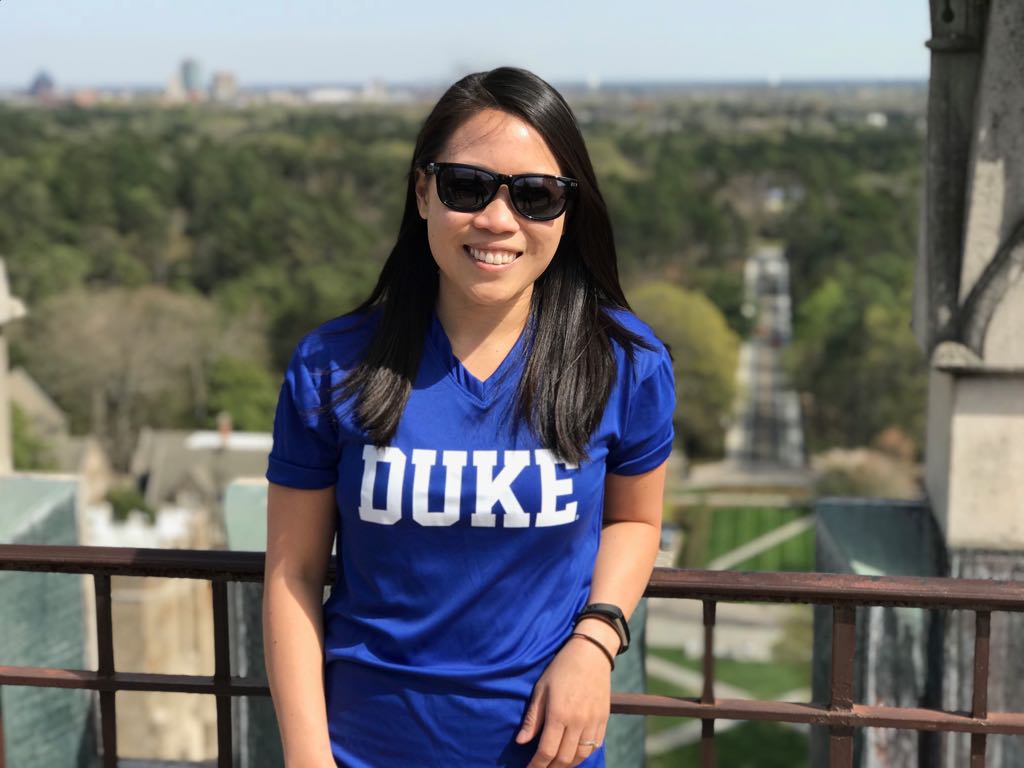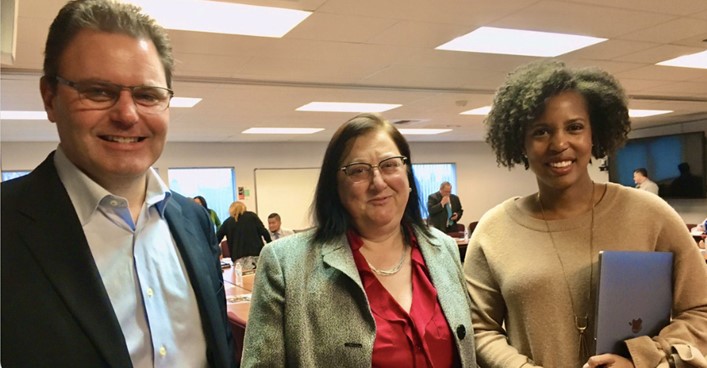
Tiffany Hsieh, Duke MBA class of 2018 and Center for the Advancement of Social Entrepreneurship (CASE) Scholar, always knew that she wanted to focus her career on ensuring equitable opportunities for others through education. What she didn’t know, however, is that she could take a number of different paths in a variety of sectors, such as moving from traditional commercial work to impact-focused work, and successfully grow her impact within the space to achieve this dream.
“It is easy for me to be motivated to pursue a career in education because I know the real impact that it has on people’s life trajectories,” said Hsieh. “The more challenging part has been making the series of refinements to better understand myself, my strengths and where I want to make an impact within my passion.”
After starting her career in international development, Hsieh taught middle school special education in Colorado with Teach for America. Although she enjoyed seeing the challenges and opportunities within the education system firsthand, she learned that she wanted to have a broader impact. As a result, she began working at a nonprofit research institute, SRI International, where she conducted impact evaluations of education programs throughout the United States. There she collaborated with, and was inspired by, several SRI leaders whose own career journeys included business consulting. Hsieh believed that their unique skillsets and experiences could also help her take her impact career to the next level, which is why she joined Team Fuqua in 2016.
“I wanted to gain learnings from the private sector, always with the goal of going back to impact and education,” said Hsieh. “By coming to Fuqua and participating in CASE programming, I was able to better understand the landscape of social impact and bridge the worlds of business and education to learn how the systems interact together.”
After business school, Hsieh joined Accenture to help companies solve ambiguous problems and identify growth opportunities as a strategy consultant. In this role, she felt that she was offered the opportunity to continue to learn and expand her business skillset, as well as gain confidence in her ability to translate her skills within a variety of different contexts – all of which she took back to the impact sector when she transitioned to her current role with Entangled Solutions (recently acquired by Guild Education).
“If I had to give one piece of advice to business students who are interested in impact, it is that you can learn from every move you make, so focus more on what you want to learn rather than finding the perfect job,” said Hsieh.
Similar to Hsieh, several other CASE alumni pursued a more traditional commercial route immediately after business school and then, using the skills they learned, pivoted to social impact. For example, Angela Crocker, Duke MBA class of 2014 and CASE Fellow, started her career in public relations and marketing, but always had a passion for impact, which she confirmed when she transitioned to work for Teach for America. Knowing that she ultimately wanted to work at the intersection of business and impact, she pursued her MBA at Fuqua to help make her “series of jobs into a career path.” After Fuqua, Crocker worked at Accenture before shifting to work at Google, where she worked her way into back into impact when she accepted her current her role at Google as Strategic Partner Manager, Global Product Partnerships – Social Impact.

“My definition of impact today is much broader than it was when I first started impact work and I am motivated by the fact that, each day, I have the opportunity to have a tangible impact and be more helpful for people using our product,” said Crocker. “One of the things that I have learned is that impact is a subject area, you still need to identify what within that subject area you want to focus on and where you want to grow your skills within that space.”
Another example is Beth Bafford, Duke MBA class of 2012 and CASE i3 Advisory Council Member, who said she “tried a little bit of everything” in her career journey. After starting her career in financial services, Bafford quickly discovered her passion for working towards larger social change when volunteering and later working for the 2008 Obama for America presidential campaign and, subsequently, administration. Sharing that she “loves the heart of government and head of business,” she decided to attend Fuqua to gain private sector experience and skills that would help her bring a new perspective and lens to impact work. After applying and refining those skills at McKinsey & Company, today she serves as the Vice President of Syndications and Strategy at Calvert Impact Capital, where she contributes to larger social change through impact investing.
“If I had to give advice to others looking to pursue an impact career, I would say explore opportunities that allow you to quench your curiosity and gain experience across sectors,” said Bafford. “Seek out people that you can learn from, who you enjoy and who inspire you.”
Offering similar advice from his career journey, Paul Sansone, Duke MBA class of 1992 and CASE Advisory Council Member, shared, “Whatever you choose to do personally or professionally, surround yourself with competent, capable people of the highest integrity.”
Sansone, who had a fairly conventional career path as an operations-focused finance professional for about 20 years, shifted to impact and worked as the Chief Financial Officer for Better World Books, then The Boys and Girls Clubs of America and currently, as a Partner – Finance and Operations with TechCXO, where he provides financial advice for a number of organizations.
“I would advise current Fuqua students to focus on their long-term career objective and ensure they’re doing something every day that furthers their journey to reach that goal,” said Sansone.
For more information about how CASE helps MBA students work to achieve their long-term career objectives within the social impact field, read about our social impact program. For more stories of impact from recent alumni, read this article.

